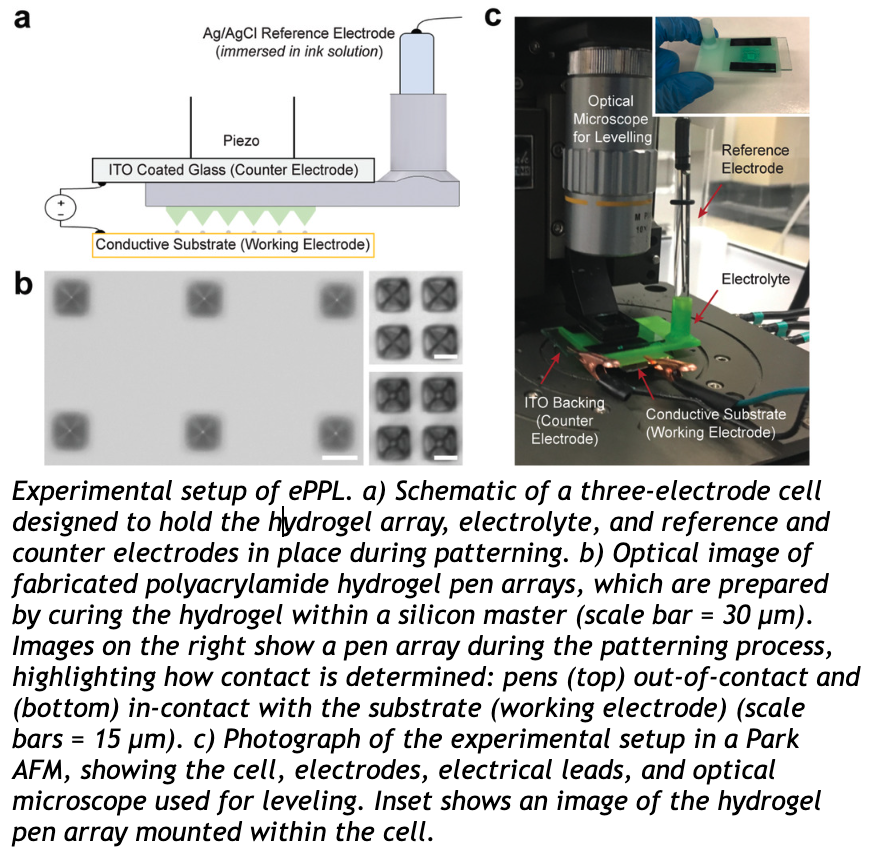Electrochemical Polymer Pen Lithography for High-Throughput Nano/Micro-Patterning
NU 2020-243
INVENTORS
-
Chad Mirkin*
-
Eun Bi Oh
-
Rustin Golnabi
-
David Walker
SHORT DESCRIPTION
Electrochemical Polymer Pen Lithography (ePPL) is a novel lithographic technique that enables high-throughput nano- to micro-scale patterning of metallic inks using a hydrogel pen array integrated into a three-electrode cell.
BACKGROUND
The synthesis and prototyping of metal micro- and nano-structures are crucial in fields like electrocatalysis, electronics, and plasmonics. Traditional methods, such as electrochemical deposition, offer control over the volume and composition of metal features but are limited by their serial nature, making large-area patterning time-consuming and costly. Scanning probe techniques have shown promise but are similarly constrained by single-tip limitations. ePPL addresses these challenges by enabling massively parallel deposition, thus overcoming the limitations of conventional methods.
ABSTRACT
Electrochemical Polymer Pen Lithography (ePPL) represents a significant advancement in lithographic techniques, combining the scanning probe capabilities of Polymer Pen Lithography (PPL) with the flexibility of electrochemical deposition. This method utilizes a hydrogel pen array loaded with metal salts, integrated into a three-electrode cell, to achieve localized electrodeposition. The system allows for precise control over feature dimensions and composition, enabling the creation of alloy features relevant for catalysis. By eliminating the need for cleanrooms or vacuum environments, ePPL offers a scalable approach to large-area patterning, facilitating the rapid, high-throughput combinatorial screening of materials.
APPLICATIONS
ADVANTAGES
PUBLICATIONS
Eun Bi Oh, Rustin Golnabi, David A. Walker, Chad A. Mirkin*, "Electrochemical Polymer Pen Lithography" Nano Micro Small, 10 June 2021.
IP STATUS
Issued US Patent 11,747,723
Patent Information:
| Title |
App Type |
Country |
Serial No. |
Patent No. |
File Date |
Issued Date |
Expire Date |
Categories:
Physical Sciences > Materials and Industrial Processes
Keywords:
3D Printing/Additive Manufacturing
Devices
Engineering
Lithography
Research tool